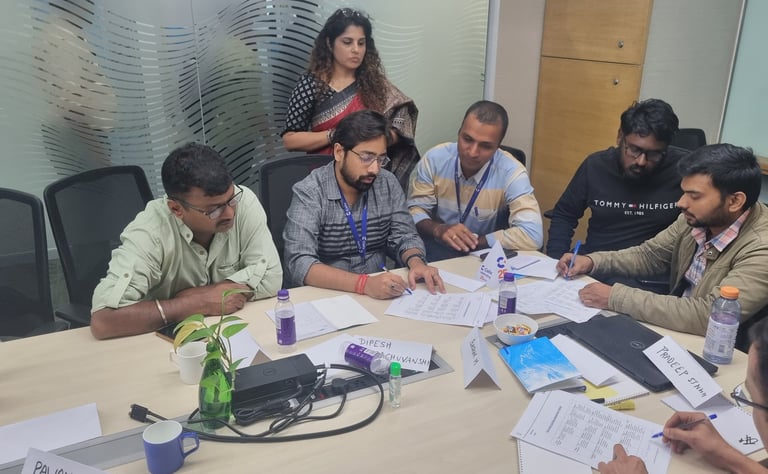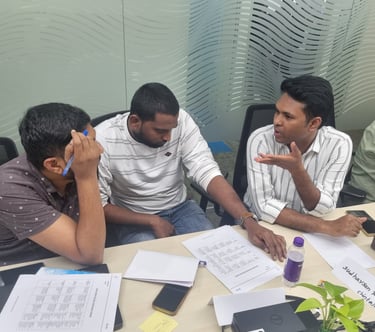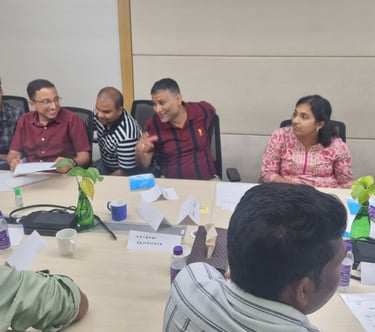Cultural Sensitization
In today’s dynamic and competitive business landscape, fostering cultural sensitivity is essential for building cohesive and inclusive teams. Understanding and respecting diverse perspectives improves communication and enhances innovation and problem-solving abilities.
The program focuses on increasing cultural awareness and empathy among employees by promoting open dialogue, encouraging respect for different viewpoints, and reducing unconscious biases. Through interactive workshops, real-life scenarios, and continuous learning, the initiative helps teams collaborate more effectively, resolve conflicts amicably, and create a positive, inclusive work environment. The ultimate goal is to build a culturally aware organization that leverages diversity to drive success and adaptability in a global market.


Challenges Addressed:
a) Limited Awareness: Employees had limited knowledge of diverse cultural norms and values, leading to unintentional misunderstandings and biases.
b) Communication Barriers: Differences in communication styles and cultural expressions were causing misinterpretations and reducing team cohesion.
c) Enhance Collaboration: Creating ease for employees to collaborate and work with cross-cultural teams.
d) Inconsistent Practices: Bringing in consistent inclusive practices across different teams and departments.
Solutions:
a) Cross-cultural Trends and Gap Analysis: Study cross-cultural trends in top MNCs and conducting a gap analysis within the organization to help participants understand the actions needed to close gaps.
b) Understanding Cultural Dimensions: Exposure to different cultural dimensions (e.g., individualism vs. collectivism, power distance) and how they affect workplace dynamics, communication styles, and leadership approaches.
c) Unconscious Bias: Identifying and addressing unconscious biases, highlighting their impact on business outcomes and team cohesion.
d) Building Cross-cultural Relationships: Providing techniques and key factors to foster stronger relationships across cultures, enabling better collaboration and mutual trust.
Outcomes:
a) Improved Cultural Awareness: A deeper understanding of cultural differences and how to navigate them
b) Enhanced Communication: Ability to communicate more effectively by recognizing and adapting to diverse communication styles to foster greater team cohesion and reduced conflicts.
c) Consistent Inclusive Practices: A uniform approach to diversity and inclusion across the organization ensures that inclusive behaviors are consistently applied.
About the assignment:




